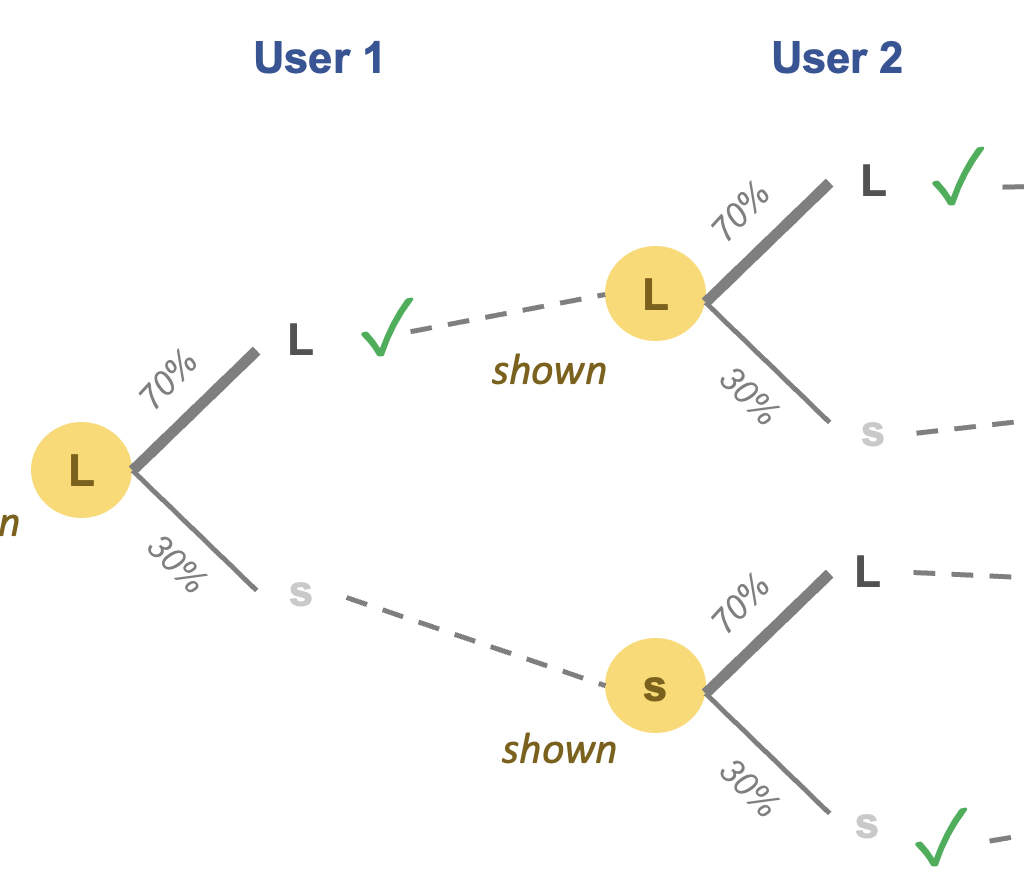The causation creep
If you're reading this blog, you probably have heard that correlation does not imply causation. Apparently, health-beat reporters and medical researchers in peer-reviewed journals know this too. They often explicitly warn us that the studies only show correlation, and they couldn't explain why the results are as they are. All is well if they stop there. But they don't.
All too often, they succumb to "causation creep". All of a sudden, they interpret the results in a way that presumes causation.
Here are two particularly egregrious examples that appeared on the Vitals blog at MSNBC.
In the first example (link), we are told:
Researchers followed 397 children from pregnancy (sic) through their first year of life, and found that those living with dogs developed 31 percent fewer respiratory tract symptoms or infections, 44 percent fewer ear infections and received 29 percent fewer antibiotic prescriptions.
And then comes the disclaimer:
the researchers acknowledged that couldn't account for all such factors [other than living with dogs that can explain the finding], and noted that they found a correlation, not a cause-and-effect relationship.
Finally, causation creep happens:
For heathlier kids, get a cat or dog, study suggests.
This is a cause-effect statement, there is no getting around it. It's saying that if you get a cat or a dog, your kids will be healthier. If the researchers truly believe that they found a correlation, then drawing this causal conclusion is unconscionable. Chances are, they just thought this is a fun thing to say (or at least the headline writer thinks so), allowing causation to creep in.
PS. The first person who commented on the article suggests that perhaps families that own pets also spend more time outdoors (playing with pets) and it could be the outdoor exposure that causes the observed effect. We don't know why but one thing is for sure: families who keep pets are not at all the same as families who don't keep pets.
PPS. It may be cruel at this point to point out that the so-called "cat" effect is 2 percent fewer antibiotics, which amounts to nothing. Also, no urban families were present in this analysis.
***
The second example (link) is if anything worse.
We are told:
Katzmarzyk and colleagues analyzed information from five earlier studies involving more than 167,000 adults that looked at the link between sitting and risk of dying from any cause over the next four to 14 years... About 27 percent of deaths in the studies could be attributed to sitting, and 19 percent to television viewing, the researchers said.
The disclaimer:
The researchers noted their study assumed a cause-effect link between sedentary behavior and risk of dying, which further research should validate, they said.
Finally, a blossom of colorful statements all of which presume causation, which they assumed without proof:
Sit less than 3 hours a day, add 2 years to your life (sic)
Reducing the daily average time that people spend sitting to less than three hours would increase the U.S. life expectancy by two years (sic)
The study adds to a growing body of evidence suggesting that sitting itself is deadly. (sic)
***
These researchers should realize they are not doing Freakonomics. It's true Levitt and Dubner also sometimes succumb to causation creep, especially in the more casual pieces. But in the original book, where they described how abortion policy could have caused crime to fall, they went through a vigorous explanation to rule out many other possible explanations. None of the studies cited here (or many other similar ones) have the care that is required to claim causation. We should note that the abortion finding has been debunked - that just goes to show how hard it is to prove causation with data that is conveniently collected.



